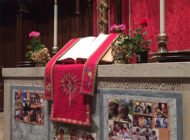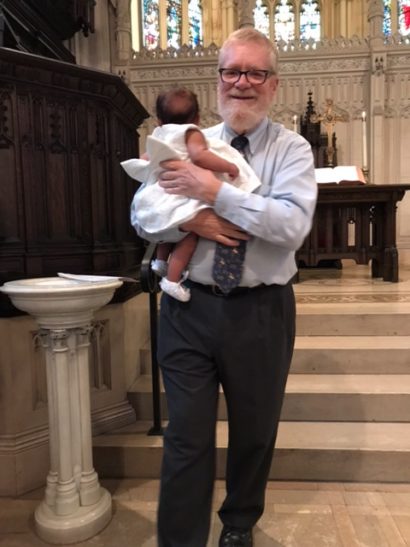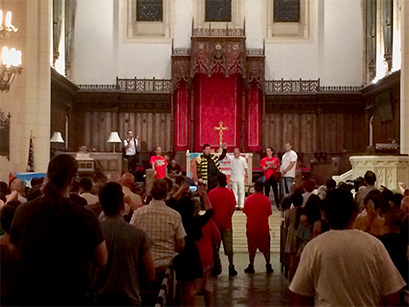 The Sacraments
The Sacraments
Along with most other protestant Christians, our church celebrates two sacraments: Baptism and Holy Communion. We see them as sacred and symbolic.
Baptism
Baptism is a rite of entry into the faith offered to persons of any age. Parents often desire to bring their children to be baptized, remembering that Jesus said, “Let the little children come to me.” When infants and children are baptized, they may choose to confirm their own faith as youth or adults.
A symbolic act, baptism recalls the moment when Jesus was baptized by John in the Jordan– he came up out of waters and experienced a life-changing presence of Gold’s Holy Spirit saying “This is my beloved.” We often repeat those words in the sacrament.
in our congregation, Baptism is a sign of God’s love–an identity claimed for the person being baptized rather than a guarantee of protection.
The act of baptism in usually performed during worship by prayer and the sprinkling of water of the forehead. We say, “This is God’s beloved”.
Communion
The sacrament of Communion (the Eucharist, in some traditions) recalls the last supper Jesus shared with his disciples before he was betrayed by Judas. He gave thanks for the meal, then tood the bread and broke it, saying “this is my body, broken for you.” He also poured out wine and said that it was the “new covenant in his blood.”
Two things about our practice of Communion:
- Most of us receive it as a symbol of Christ’s presence with us. Persons in other traditions are welcome to share the sacrament, bringing their own understanding to it.
- We have a long history of passing the elements of communion (the bread and the cup) to people where they are seated. People eat the morsel of bread when it is served, and drink the cup of juice together.
Recently, we have experienced some services where people come forward, receive the bread, and dip it into the cup, which may be juice or wine.
We welcome all to the table.





